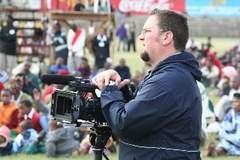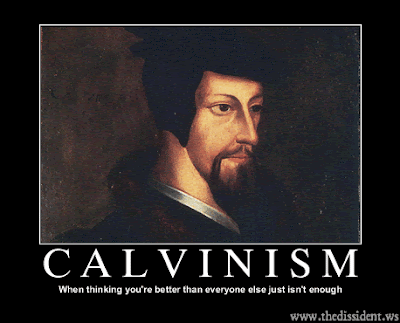
(Monroe County Community College)
BE THANKFUL FOR A KINGDOM THAT CANNOT BE SHAKEN
“Therefore, since we are receiving a kingdom that cannot be shaken, let us be thankful, and so worship God acceptably with reverence and awe.”
- Hebrews 2:18
We’re not in control. Agreed? Things we don’t control include: the global economy, what’s happening in India today, what’s happening in Bangkok today, other people, our own addictions, the weather, the common cold, gas prices, nations, the past, the future, most of what’s happening now, and death. Because these things are fundamentally out of our control or anyone’s control, attempts to control them sometimes get ugly, such as when we try to control other people.
All these uncontrollable things shift and move beneath our feet and before our eyes and make life uncertain. Sometimes the very foundations of our life get shaken and we get fearful. This has happened to me and will happen again, I am certain.
Many years ago my life was shaken. “I” was out of control. My choices and their results left me in a fearful condition. It was then that I looked to Christ. And something inside me shifted. The shift was from a heart that trusted in fundamentally uncontrollable things to life in a “kingdom that cannot be shaken.” This shift has been, for me, THE event of my entire life. Now I spend most of my time seeking the kingdom of God, and studying the things of the kingdom, and looking to God for strength to live these things out. I’m not the perfect kingdom citizen. But, like others I know, I’m the recipient of God’s kingdom. The result is that I am thankful. And it causes me to “worship God acceptably with reverence and awe.”
PRAY, WATCH, BE THANKFUL
“Devote yourselves to prayer, being watchful and thankful. And pray for us, too, that God may open a door for our message, so that we may proclaim the mystery of Christ, for which I am in chains.”
- Colossians 4:2-3
I think there are a lot more people who call themselves “Christians” who are not devoted to prayer then there are those who are devoted to prayer. I don’t mean to judge people re. this, but for years I’ve led conferences and taught on prayer throughout the United States and around the world. “Devotion to prayer” is lower in America and Europe than in Third World countries. I have found that the more one enters into the Third World the more devotion to prayer there is. Why?
Because the more stuff one has creates the illusion of un-neediness. And, a person has to be very, very busy to acquire all the stuff, so “there’s no time to pray.” In reality we’re all very needy. In America, mostly, we just don’t realize it.
The same, I think, is true for “watchfulness.” The American way of watching is passive, unengaged media-gazing. Media-deprived people know what it is to be watchful, like the farmer standing in his field gazing deep into the horizon searching for rain. True watchfulness follows from true neediness.
Paul instructs us to be devoted to prayer and to watchfulness. Real watchfulness contains an element of mystery. The media-illusion casts a spell of “knowledge” on people, masking the truth that this world we live in, to include our own selves, remains fundamentally a great mystery. The more mystery, the less we know we’re not in control, the more watchfulness emerges.
I find it interesting that Paul next instructs us to devote ourselves to being thankful. Thankfulness follows from prayerfulness and watchfulness. This is because a person who is devoted to prayer and watching has a great sense of need and dependency. When one is needy, then provision is not so taken for granted. Hence, thankfulness emerges. Gratitude happens.
Give your life to being thankful. Focus on thankfulness. Love being thankful. Make thankfulness a priority. Dedicate to thankfulness. Get a prayer life. Get a watchful life. Get a thankful life.
OVERFLOW WITH THANKFULNESS “So then, just as you received Christ Jesus as Lord, continue to live in him, rooted and built up in him, strengthened in the faith as you were taught, and overflowing with thankfulness.”
- Colossians 2:6-7
At age 21 I received Christ Jesus as Lord. I welcomed Jesus. The result is that for the past 38 ½ years I have lived in him. Not perfectly. Jesus is God, I am not. But my receptiveness to Jesus has so changed my life that I wonder if I’d even be alive today were it not for him. I have sunk my roots into the deep, rich, life-giving soil of God’s kingdom and never left. If anything good has come into me and through me to others it’s Jesus, flowing through me.
And I am thankful. I feel thankful today. I don’t always feel that way, and when that happens I’ve lost the forest for the trees. I see the darkness and miss the light. I rarely feel ungrateful. Sometimes, I’m just in neutral – not ungrateful, but definitely not overflowing with thankfulness.
To “overflow,” literally, means to have more than a full cup. When a cup of water is full it overflows. Overflowing is the indicator of fullness. Therefore to be filled with God’s Spirit is to necessarily overflow. Part of this overflow is a thanks-shaped heart. It’s a wonderful way to live this life. It’s life sans bitterness. It’s for every day, every week. It’s even for Thanksgiving week.
Receive Christ Jesus as Lord.
Continue to live in him.
Sink your roots deep into life in his Kingdom.
Be built up in him. Construct your life in him.
Find yourself being strengthened in faith.
Let the overflow of thankfulness pour forth.




















